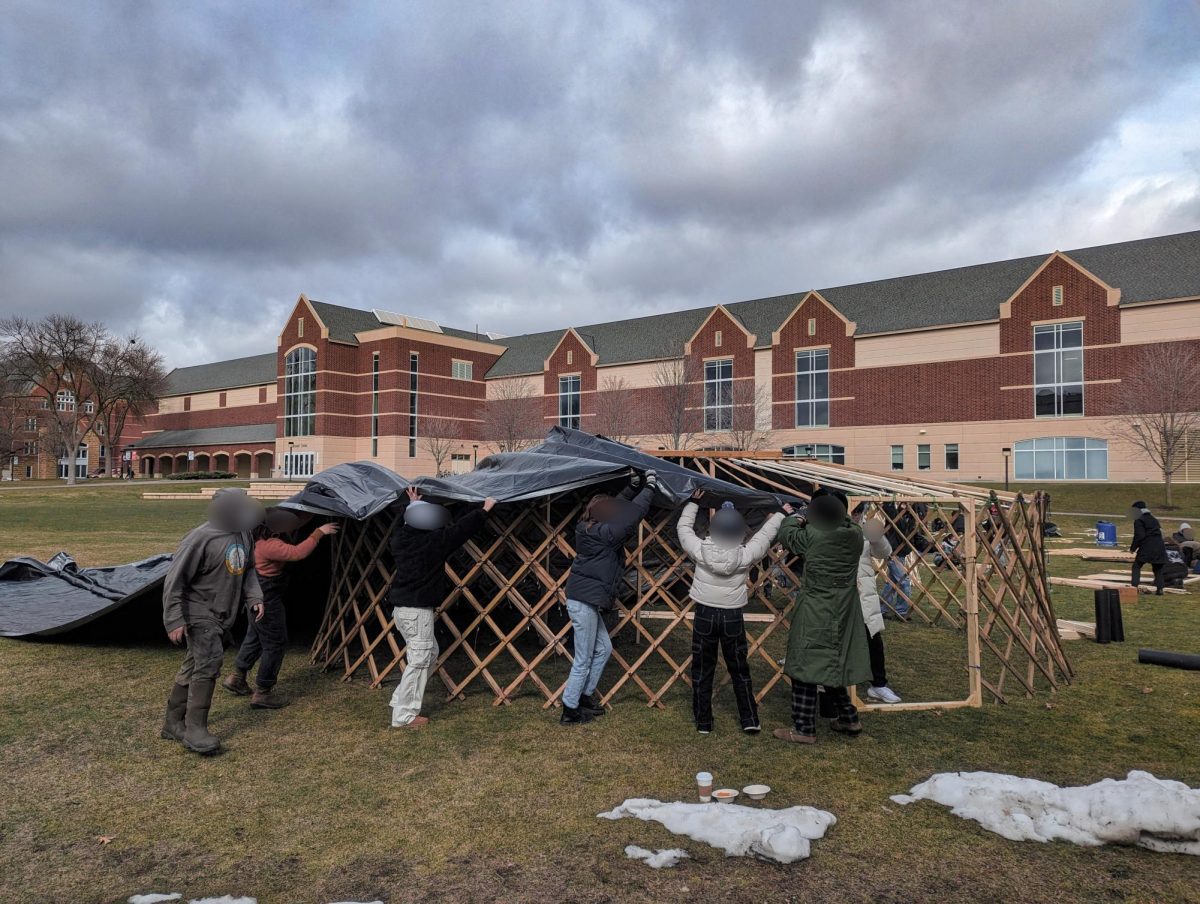Editors’ note: Teach for America’s co-CEO Matthew Kramer visited Macalester last Friday after learning about last spring’s Teach for America Truth Tour. Macalester Students for Educational Equity (MacSEE) is holding Education Week next week for more events and discussion about education. The following interview with Kramer has been edited for length.
The Mac Weekly: Tell me about why it’s important to you to visit Macalester.
Matthew Kramer: [I visit] colleges because it’s important to me that extraordinary people join Teach for America. A group of a hundred senior people at Teach for America agreed we would go out and spend a day on campus. And, so, I live here. I called the recruiter from Macalester and the University of Minnesota, which seemed like two logical places to go.
TMW: A lot of Mac students are concerned about having minimal teacher training when they enter their Teach for America placement. What would you say to a student with those concerns?
MK: I would say that it’s a totally legitimate thing to be concerned about. Because this is going to be hard, and you’re not going to feel prepared, and if you ask Teach for America people in October of their first year whether they feel prepared, they will tell you they do not. It’s also true that if you ask non-Teach for America teachers in October of their first year, they do not feel prepared.
I think I would try to differentiate between concern about whether you are going to be ready, to which the answer is no, versus the sense that Teach for America is somehow worse than other approaches, which I think the answer is, it isn’t. The literature is very clear that coaching-style investments, mentorship-style investments, reflective practice-style investments, produce better results than—
TMW: Produce better results for the students or for the teachers who are involved with Teach for America?
MK: They make teachers better for their kids that they’re teaching, to do more of your training, more of your coaching, after you start. Teaching is just, it’s a lot like other professional skills. It’s a little bit of an acquired skill. And so there’s a lot of research. A lot of academic research. And it all says the same thing. But I think the core of the thing is, it’s been—I think some people want to frame this as ‘Does Teach for America believe people should be well trained to be teachers or not?’ I just think that’s not a fact-based frame.
TMW: So does Teach for America have data on the long-term effects of students who have been in Teach for America classrooms?
MK: There is no good long-term tracking of kids in education. The schools don’t keep track of them. Which is a tragedy because I would love it. In the last, you know, say, 10 years or so, schools have kept short-term information like, this kid, what was their standardized test score last year, what’s their standardized test score this year, year after year? So now schools have that. They used to not have that, either.
So there’s a lot of very clear research on Teach for America, short-term impacts. There’s sadly no information about any sorts of teachers long-term.
TMW: Another concern that comes up a lot at Macalester is the privilege and power differential between Teach for America corps members and the communities where they’re placed, whether it’s a white teacher in a school with predominantly students of color, or a big class difference, or just the fact that corps members are going to leave after two years. And there’s constant turnover. So obviously you’ve heard this before, but I want to hear about it from you. What would you say to someone?
MK: The parents’ view is [that] “The things I care about are a teacher who loves my kid, and a teacher who sees a lot of potential in my kid and is working to make that potential get realized. That’s what I care about.”
And so, every group of parents said the same thing. So we started asking them, “Can I just start running through critiques of Teach for America with you and tell me what you think of them?”
So I’d start with, “What do you think about the fact that we only ask for a two-year commitment? Then a bunch of people leave?”
And I just remember really well, this one woman said, “First of all, I just want to say, my daughter is a senior right now, she’s on her third consecutive year of Teach for America teachers. Different people each year, but third consecutive year. It’s changed her life, she’s on her way to college, we’re very happy with Teach for America.” But, she’s like, “Here’s the thing. My kid has each teacher for one year. And so, while it is interesting to know whether that teacher will be around somewhere else in the school next year—it’s like, I get a list of things I care about. It’s not at the top of the list. The top of my list is, ‘Does my kid have a good teacher this year? And that’s what I care most about.’”
So I said, “Okay, what about the fact that Teach for America people, you know, generally aren’t from around here?”
And another woman, whose daughter was a junior and had a Teach for America teacher, she said, “You know, honestly, one thing we’ve got a lot of around here are people from around here.”
It’s not a bad thing to have a few teachers not from around here. You know, we’re not talking about repopulating the school with only people from out of town. We’re talking about whether one very small fraction of the faculty can be from somewhere else, and honestly, that’s fine.
And, on race, the answers are slightly different because the—well, we ask people, you know, “Well, what about the fact that a lot of Teach for America teachers are white?” And the responses we got on that ranged from “We don’t care that much, it just depends on whether they’re good,” to folks who thought [that] “It’s really important to us to have role models of teachers of color, especially for our boys of color.”
Fifty percent of people coming into Teach for America are people of color. So, like, we’re three times as diverse as the teaching pipeline in America. And dramatically higher rates of folks who, they themselves, grew up in low-income backgrounds.
TMW: What kind of relationship does Teach for America have with the communities and the schools and the principals and the teachers in those schools who are there permanently?
MK: I mean, generally pretty good. I know exactly what the principals think because we survey them every other year. And they’re a very enthusiastic group of people.
There are stories every year of some Teach for America person who’s a jerk and build a really bad relationship with those around them. Every year you hear that story. It doesn’t happen very often.
The much more common story, the story I hear the overwhelming majority of the time, is [that] the Teach for America people go in, and [they work] really hard, and care really a lot about the kids and show it.
TMW: At a macro level, is Teach for America thinking about larger societal structures where whiteness is valued? Or where, you know, where achievement is decided by white, upper-class segments of society? How does Teach for America interact with those kinds of structures?
MK: Yes. So, we spend a lot of time at Teach for America talking about racial justice and social justice. It’s really important for our staff members to have thought hard about these issues given the nature of the work we do. And our view is that what educators are supposed to do is teach social consciousness and political consciousness and critical racial consciousness alongside hardcore academic skills.
And so we work with our teachers to understand what their role is as a teacher in that environment. We also work with a lot of the power structures in America. We tell them that we care about racial and social justice, we tell them what our view is of pedagogy, we’re totally straightforward. We do not get involved in, we’re not involved in every issue that’s around tackling whiteness, for example, or social oppression. We’re focused on education. But within that, we are a very pro-individual expression, anti-oppressive force, you know, narrative notwithstanding.














Owen Gray • Sep 12, 2019 at 5:13 am
What a funny blog! I truly enjoyed watching this funny video with my relatives as well as with my colleagues.
Joshua Black • Sep 10, 2019 at 10:31 pm
What’s up everybody, I know YouTube video consists of fewer bytes of memory due to that its quality is awful, except this YouTube video has fantastic picture quality.
Brandon Gill • Sep 8, 2019 at 3:13 am
I was studying some of your blog posts on this internet site and I believe this internet site is real informative ! Keep on posting.